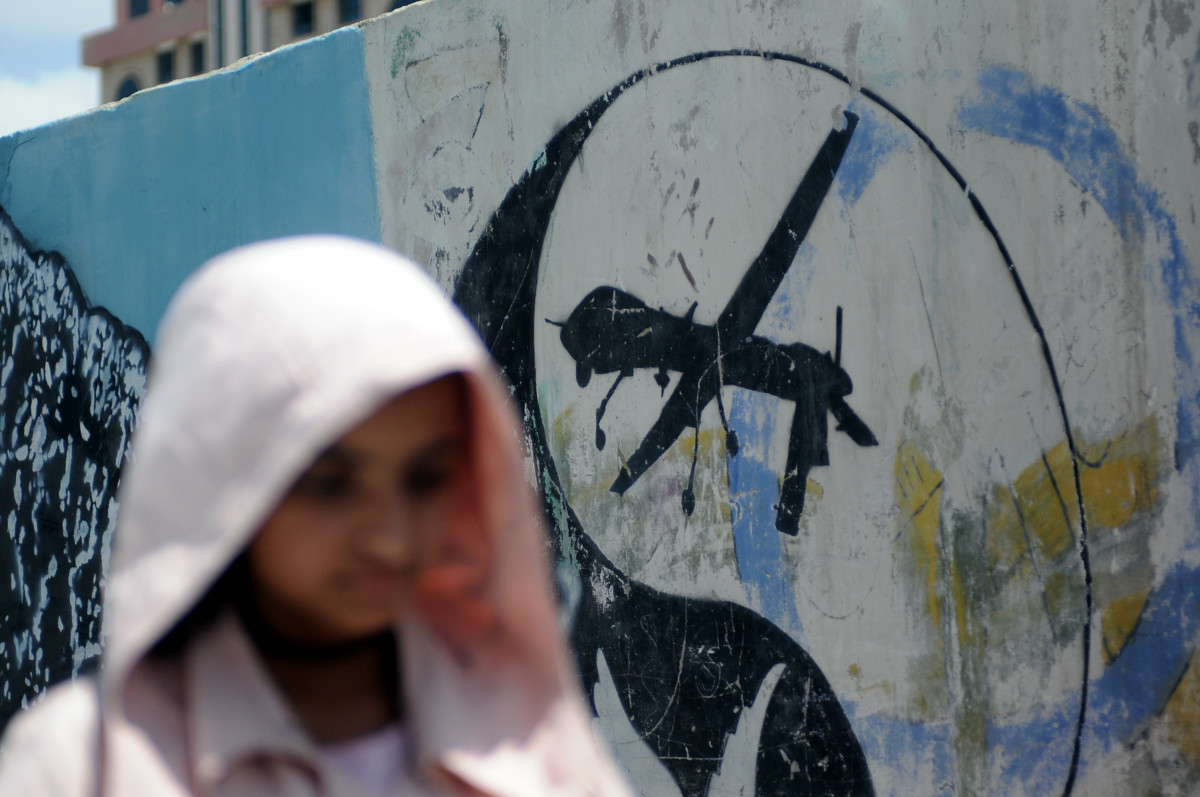Support justice-driven, accurate and transparent news — make a quick donation to Truthout today!
In a “horrifying” development that international aid groups and independent critics warn could worsen what is already the world’s most devastating humanitarian crisis, the Trump administration is reportedly considering a plan to greatly expand the US military’s role in Yemen in an effort to help Saudi-backed forces seize the country’s main humanitarian aid port.
According to the Wall Street Journal—which first reported the details of the plan on Sunday—the Trump White House “is weighing an appeal from the United Arab Emirates (UAE) for direct US support” for Saudi-forces that are closing in on the port city of Hodeidah, where nearly 80 percent of all humanitarian aid and food arrives. Hodeidah is currently controlled by Houthi rebels.
“Secretary of State Mike Pompeo has asked for a quick assessment of the UAE’s plea for assistance such as surveillance drone flights to help a Saudi-led coalition retake Hodeidah,” the Journal noted.
This is horrifying – the US is weighing a more direct role in a military operation that will push Yemen’s famine into overdrive:https://t.co/EPgWZJwdRc
— Alex Emmons (@AlexEmmons) June 4, 2018
“The push for Hodeidah is likely to exacerbate an already catastrophic security situation in Yemen,” Francois Moreillon, head of the International Committee of the Red Cross delegation in Yemen, told the Journal in response to the White House’s reported plan.
Amid reports that Saudi-backed forces are now just miles away from Hodeidah after taking over a nearby town, Norway Refugee Council chief Jan Egeland additionally warned that an attack on the port city “would destroy the lifeline to millions.”
Sen. Chris Murphy (D-Conn.)—one of the few lawmakers from either side of the aisle to speak out forcefully against U.S. complicity in the Saudi-led assault on Yemen—ridiculed the Trump administration’s apparent consideration of a plan that could further devastate a nation in which millions are already on the brink of famine.
Trump Foreign Policy 101:
U.S.: “Saudis, don’t invade Hodeidah. Terrible idea. Tons of civilians will die.”
Saudis: “We’re doing it.”
U.S.: “Please don’t. Could be catastrophic.”
Saudis: “We’re doing it anyway.”
U.S.: “Yea? Ok. Maybe we’ll help.” https://t.co/wlX3US2GUs
— Chris Murphy (@ChrisMurphyCT) June 4, 2018
While the plan for a larger US military role in Yemen has not been finalized, the Journal reports that some US officials are eager to provide further military assistance to Saudi-led forces in Yemen.
“We have folks who are frustrated and ready to say: ‘Let’s do this. We’ve been flirting with this for a long time,” an anonymous Trump administration official told the Journal. “Something needs to change the dynamic, and if we help the Emiratis do it better, this could be good.”
The possibility of deeper US involvement in Yemen comes just weeks after the New York Times revealed that US special forces have been helping train Saudi soldiers along the Yemeni border—a secret operation that was not publicly debated or approved by Congress.
“I have strong concerns that the Trump administration is getting the US more involved in a war in Yemen without congressional authorization,” Sen. Bernie Sanders (I-Vt.) warned in response to the Times report. “We must prevent the US from getting dragged into another never-ending war.”
Press freedom is under attack
As Trump cracks down on political speech, independent media is increasingly necessary.
Truthout produces reporting you won’t see in the mainstream: journalism from the frontlines of global conflict, interviews with grassroots movement leaders, high-quality legal analysis and more.
Our work is possible thanks to reader support. Help Truthout catalyze change and social justice — make a tax-deductible monthly or one-time donation today.
